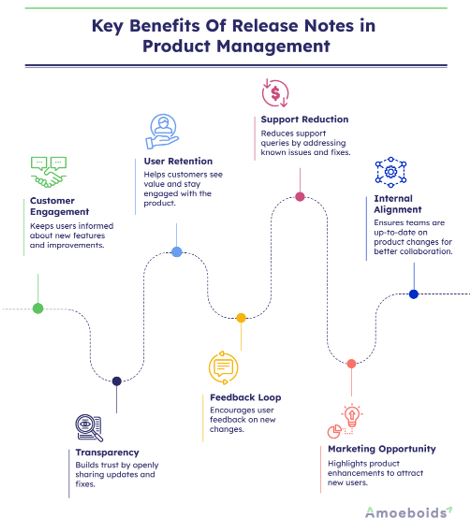How Dental CPAs Solve Unique Financial Challenges and Drive Practice Success
For many dental professionals, managing finances isn’t their primary concern—providing excellent care and building a patient base are. However, running a dental practice is more than just clinical work; it’s also about managing the financial health of a business. While some dentists may rely on general accountants to handle their finances, Dental CPAs bring a much-needed level of specialization to the table.
Unlike standard accountants, Dental CPAs are highly trained to navigate the complexities and nuances of the dental industry, offering insight that goes beyond typical tax filing and bookkeeping. From managing tax strategies to guiding practices through the unique financial challenges of patient billing, insurance claims, and even staff compensation, a Dental CPA plays a pivotal role in a practice’s success. But what are the specific challenges they address that make their services essential?
The Role of Dental CPAs in Managing the Complex Revenue Cycle
In a dental practice, the revenue cycle isn’t as straightforward as in other businesses. Dentists are often dealing with multiple insurance providers, varying reimbursement rates, and a complicated claims process that can extend for weeks or months. Even after services are rendered, payment for those services is often delayed, requiring consistent follow-up and negotiation with insurers.
A Dental CPA’s primary job in this scenario is to streamline the revenue cycle. They work with the dental practice to create systems that speed up billing processes and improve the efficiency of collections. For example, they might implement better tracking systems for insurance reimbursements, recommend software tools to manage patient payments, or suggest ways to improve billing practices for quicker turnaround.
Moreover, Dental CPAs can identify issues with how insurance claims are submitted, ensuring that reimbursements are maximized and that the practice isn’t losing money due to underpayments or incorrect claims. This process also involves ensuring that the practice is compliant with Medicare, Medicaid, and private insurance requirements, which differ greatly from one insurer to another.
What many dental professionals may not realize is that small inefficiencies in billing or collections can quickly add up, affecting the overall profitability of the practice. Dental CPAs help prevent these inefficiencies by offering a strategic financial approach, which not only improves cash flow but also ensures the practice is compliant with complex billing regulations.
Dealing with High Overhead: The Cost of Equipment and Staffing
One of the biggest challenges dental practices face is high operational costs. From expensive dental equipment to the cost of specialized supplies, the financial burden can be overwhelming. Additionally, many dental practices have to deal with a high level of staffing, including hygienists, office managers, and dental assistants—all of whom need to be paid regularly, even when revenue is slow.
Dental CPAs are uniquely positioned to help practice owners manage these costs. They work with dental practices to develop a budgeting framework that prioritizes essential expenses while identifying areas where costs can be reduced. For example, they might analyze the practice’s spending on supplies and equipment and suggest more cost-effective suppliers or help negotiate better financing terms for high-cost purchases like dental chairs or imaging systems.
Additionally, Dental CPAs play a key role in managing payroll, ensuring that compensation for staff members is structured in a way that aligns with the practice’s cash flow and revenue. They help determine whether a practice should offer incentives to employees, such as performance-based bonuses or retirement plans like 401(k)s, which are often seen as a tool to retain good employees.
In the case of scaling a practice, Dental CPAs can assist in managing the financial implications of hiring new staff, expanding office space, or upgrading equipment—all while ensuring that the practice remains profitable and doesn’t overextend itself. Proper financial forecasting helps dental owners avoid cash shortages during periods of growth.
Maximizing Tax Benefits and Avoiding Costly Mistakes
Tax strategy is another area where Dental CPAs excel. A general accountant may handle tax filings, but Dental CPAs specialize in dental-specific tax issues. Dentists, who often make significant capital investments in equipment and office infrastructure, have access to a number of tax deductions that are unique to their industry. For instance, Section 179 deductions allow dental professionals to immediately deduct the cost of qualifying equipment in the year it’s purchased rather than depreciating it over several years.
Additionally, Dental CPAs ensure that tax credits and deductions related to continuing education, malpractice insurance, and other business expenses are utilized to their full potential. They also provide guidance on how to structure a practice—whether as a sole proprietorship, partnership, or corporation—in the most tax-efficient way. This is especially important for new dentists who might not yet be familiar with the complexities of tax law.
A Dental CPA’s ability to strategically manage tax filings can reduce a practice’s overall tax liability. They’re also adept at navigating the intricacies of self-employment tax, helping practitioners find ways to minimize their tax burden and avoid penalties. Over the course of a dental career, this can result in significant savings, making the investment in a Dental CPA a valuable decision.
Preparing for the Future: Succession and Retirement Planning
Most dentists aren’t thinking about retirement during their early years in practice—but they should be. Planning for the sale of a practice, structuring it to become a valuable asset, and ensuring there are funds set aside for retirement all require thoughtful financial planning. A Dental CPA plays a crucial role in helping practice owners plan for the long term.
Succession planning is one of the most overlooked aspects of running a dental practice. Whether a dentist plans to sell the practice to a younger partner, sell to an external buyer, or eventually close it down, a Dental CPA ensures that the practice is financially attractive to potential buyers. They assess the practice’s valuation, looking at key factors like patient base, annual revenue, and long-term contracts with insurance companies, which can influence the overall sale price.
Retirement planning also ties into this, as Dental CPAs help dentists put in place the necessary retirement accounts and investment strategies to ensure financial security after they leave their practice. By setting up and contributing to retirement accounts like IRAs or 401(k)s, dentists can avoid relying solely on the sale of their practice for retirement funds.
The Unseen Value of Dental CPAs: Strategic Advisors for Dental Practices
While it’s clear that Dental CPAs are experts in managing taxes, overhead, and growth strategies, their value goes far beyond the numbers. A Dental CPA acts as a strategic advisor, providing guidance not only on financial matters but also on how to optimize the business operations of a dental practice.
Dental CPAs assist in goal setting, helping dental professionals identify short-term and long-term objectives. Whether that’s improving patient retention, expanding into new service areas (such as cosmetic or orthodontic services), or increasing profitability, Dental CPAs work hand-in-hand with dentists to ensure that financial decisions are in line with the overall vision for the practice.
They also act as trusted partners when it comes to decision-making. When faced with a major business decision, such as purchasing new technology, hiring additional staff, or making significant investments, a Dental CPA can provide a financial analysis of how these decisions might impact the practice both immediately and in the future.
Not Just Number Crunchers: The Holistic Approach of Dental CPAs
A Dental CPA isn’t just someone who prepares your taxes or balances your books—they’re an integral part of a dental practice’s long-term strategy. Whether it’s helping you navigate the complexities of insurance billing, developing a smart tax plan, or advising you on scaling your practice, Dental CPAs have the expertise to help you achieve your business goals with confidence.
Their role extends far beyond basic accounting, offering a level of specialized financial knowledge that directly contributes to the overall health and success of the practice. As dental practices grow and face more complicated financial scenarios, having a Dental CPA as a partner is no longer a luxury—it’s a necessity.
So next time you’re assessing the health of your practice, don’t forget to consider the value of a skilled Dental CPA. Their expertise could be the key to unlocking your practice’s financial potential and securing your long-term success.




